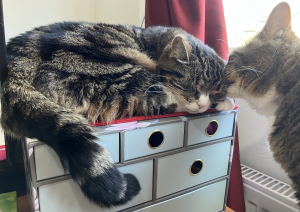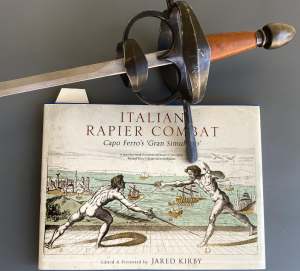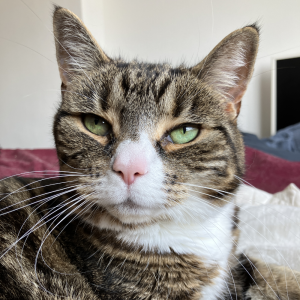
You wouldn’t force her to work out the Mixolydian from first principles, so don’t expect yourself to work out everything about writing from first principles either.
We’re all always learning more about our craft and we should celebrate that as growth, not chastise ourselves for failing.
Some writers seem to instinctively know how to structure their novel or TV script, never paying much attention to acts or turning points as they lay down their first draft and, later, revise their final draft. The rest of us need to work a bit harder, but we shouldn’t beat ourselves up about that. Every writer starts their journey from a different place, has different skills and different strengths, and needs to learn different lessons to reach their full potential.
The lesson I need to learn is, apparently, about structure.
I have been struggling with my writing recently, as those of you who read my post about patience will remember. To recap, I’m working on a set of scripts for a six part urban fantasy TV series called Tag. Thankfully it’s spec work, so there’s no deadline and I can take as long as I like on it, although I would like to finish it all by September 2023, two years after I started. But a couple of months ago I hired a script editor to look over the pilot script and at about that point, the gears in my brain ground to a halt.
It’s not that the report my editor sent was bad. It was, on the contrary, very very good. It said very nice things. I share this lightly edited quote this not for the sake of my ego, (OK, maybe a little bit), but for the context that this is not about me getting bad notes and going off in a huff.
Tag is a very creative and interesting magical realist concept [which is] very intriguing and [has] quite an original conceit. The blending in of Welsh influences and the deep sense of history you provide ties the whole thing together and gives it all depth and credibility plus a little-explored cultural aspect.
Nice.
The rest of the report is similarly positive, but my editor did identify some issues that need to be fixed, specifically that my protagonist is too passive and several characters’ motivations are unclear. I totally agreed with that diagnosis so we had a call to discuss, which was also very useful and positive. I came away feeling like this was a problem I could solve, and that the scripts will be much improved due to this extra work.
And then my brain shut down. It absolutely refused to come up with any solutions to these problems at all. It was like someone had pulled the creative plug.
I took some time to mull everything over. I annotated my script editor’s notes. I did some webinars and watched some videos. I tried to re-plot my episodes. I did some diagrams to illustrate chains of causality. Worked on character and motivation. And about a month ago, when I wrote that post about patience, I felt things shift a little… but the logjam hasn’t completely freed up.
I always used to say that if you can’t make a decision, it’s because you don’t have enough information to allow that decision to be made. Decision making rarely feels like a logical process to me, but rather something that our subconscious does on its own, with our conscious simply finding palatable justifications after the fact. If I’m not writing, it is because my subconscious doesn’t have enough information to make the plot and character decisions that it needs to make.
So I started looking for information about how to structure a TV series, as opposed to a novel/film. I wasn’t entirely sure that these two things were the same, but then, I wasn’t entirely sure they weren’t, either. I’m writing a serial, a story which evolves over several episodes and comes to a conclusion at the end, as opposed to a ‘monster of the week’ episodic drama. Think Loki (serial) rather than Bones (episodic).
I wanted to know how it should be structured. Do you take the usual three act structure and just stretch it out into six? If so, do you have Act 1 as Episode 1, then extend Act 2 into four episodes, and the finale is Act 3? Or do you do it more evenly, with each act split over two episodes? Or would that mean that you’d end up with a bit of flabbiness every other episode? Does each episode have its own three act structure? Or five act structure?
I’ve read loads about structure. I can give you chapter and verse about the theory. I’d even managed to give my pilot a nice little five act structure without thinking about it at all. It’s not like I’m a total structure newbie. I’ve internalised enough of what I’ve learnt to be able to write it without thinking too hard about it.
But for some reason, these thoughts about structure became the biggest spanner I could possibly have stuck into my creative gears. I might be overthinking things, but if I am, I can’t stop. I can’t circumvent this block. I have to grind away at it until I work out how to fix it.
In my search for more information, I stumbled across the Six Act Structure, which is a new one on me:
Six act structure is an innovative structural technique that takes the focus off of ambiguous narrator oriented concepts and places it where it belongs: on the actions and goals of the character.
Most successful modern stories are structured on a universal pattern of six actions undertaken by their characters. This sequence of six actions, or acts, is the hidden foundation of modern story structure. By focusing on these actions, you can easily and accurately identify act divisions within your stories, eliminate sagging middles and create narratives that unfold with logic and momentum.
I bought the book, which is by someone called Marshall Dotson who appears to exist online only in relationship to this and one other book which might be a spoof (I haven’t read it). He doesn’t appear to have any writing credits to his name and I couldn’t find out anything else about him. But if he’s not a writer, he’s clearly a reader and a watcher – that’s evident in the analyses he includes in his book, The Story Structure Secret: Actions and Goals.
Still, mysterious author aside, I’m about halfway through and I can feel little lightbulbs going off in my brain. Useful little lightbulbs. Dotson is answering questions that other books on screenwriting don’t even ask. And he’s answering questions that pertain specifically to the weaknesses in my script.
Awesome! I might have the tools I need to crack this nut!
And that’s when the self-flagellation set in. If I rely on the structure set out by this person who appears to have no writing credits at all, what does that say about my skills as a writer? How could I have gotten my structure so badly wrong that fixing it has stumped me for months? Am I really just a talentless hack with delusions of grandeur?
Then I remembered what I used to say to people who said that guitar lessons were pointless and stripped all the creativity out of making music: Sure, you can spend years working out your scales from first principles, the diatonic, chromatic, major, minor, and the rest. You can work out the seven modes, Ionian, Dorian, Phrygian, Lydian, Mixolydian, Aeolian and Locrian. You can make lists of different chords and which works well with what… but… why would you? All that’s been done. Learn it. Use it. Build on it. Stand on the shoulders of giants instead of building your own scaffolding.
As with music so with writing. Why expect yourself to work everything out from first principles when other people have done the heavy lifting? Learn it all. Internalise it all. Use what works for you, discard what doesn’t. Working to a pre-defined structure doesn’t make your work formulaic; only bad writing can do that. And don’t judge the source of knowledge, judge the knowledge itself. It doesn’t matter who Dotson is, it matters that what he says makes sense and is useful.
It does and it is. And, more importantly, I will emerge from this a much better writer with a wider array of tools at my disposal. I will have learnt something useful and that is to be celebrated.
Alex North webinar; Ada Lovelace Day saved!
Thanks to those of you who joined us for the Alex North webinar last week. The recording worked (I always worry!) and I’ll get it up as soon as I have a moment.
Moments are slightly scarce for a bit, though, because yesterday I could finally announce that I have managed to save Ada Lovelace Day, the global celebration of women’s achievements in science, technology, engineering and maths that has been my full time job for the last eight years. I’m still short of sponsors for it, so lots of work to do to on the financial stability front, but I at least have some clarity on the rest of the year.
Hopefully as things settle down I’ll be able to go back to a weekly schedule here, but please bear with me over the summer as I work out the shape of my new working life.
 Thoughts start dribbling out of your nose and are lost forever, which is why you should always carry a handkerchief.
Thoughts start dribbling out of your nose and are lost forever, which is why you should always carry a handkerchief.









